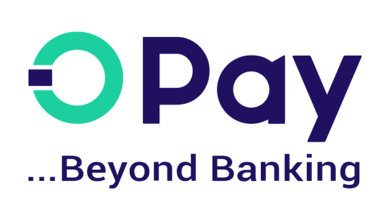Everything You Need to Know About Online College Enrollment
With the rise of online education(Online College Enrollment), getting your degree doesn’t have to stop when you hit college age. Many colleges with open enrollment offer traditional on-campus and online programs—including technical degrees, associate’s degrees, bachelor’s degrees, master’s degrees, and doctoral degrees—for students at all levels of education.

To help you navigate online college enrollment, here are five things you need to know about it before you decide if this educational path is right for you.
What is Open Enrollment?
One of the best ways to learn about online college enrollment is by examining some of its advantages and disadvantages. For instance, open enrollment schools typically offer an enormous array of majors, often including those that aren’t normally associated with a traditional learning environment. And in most cases, students can take as many classes per semester as they want—without any required graduation timelines.
In addition, open enrollment schools offer something that most traditional programs lack: flexibility. Students can take classes whenever and wherever they want, which makes it easy for them to balance schoolwork with their other obligations. That also means online students don’t have to worry about commuting or finding a place where they can study and work at their own pace.
How Do I Choose an Open Enrollment School?
There are some really wonderful and interesting open enrollment colleges that can offer students a top-notch education with an open enrollment policy. However, it’s important for students who plan on applying to these colleges that they know what they are getting into first and make sure that they meet all of the requirements listed in their open enrollment policies. Here is a helpful guide for those who wish to pursue online college enrollment.
1. Research your state’s open enrollment policy: The first thing that you need to do is research your state’s open enrollment policy and make sure that you meet all of their requirements before applying for online college enrollment. Some states have very specific requirements, such as requiring students to be residents or having a certain GPA in order to qualify for open enrollment, so it’s important that you know what these are before filling out any applications or paying any fees.
2. Decide whether you need credit recovery: If you have already failed a class or two, then one of your biggest concerns might be credit recovery. If so, then you may want to consider taking classes that offer either free tutoring services or free credit-recovery courses in order to boost your chances of succeeding with online college enrollment.
3. Find and apply for colleges with open enrollment: Once you have your state’s open enrollment policy down and you have decided whether or not you need credit recovery, it’s time to start researching different schools that are offering online college enrollment. Some schools will actually charge you fees even if they are an online college, so make sure that any school that charges is worth it before signing up.
4. Choose an accredited open enrollment school: Accreditation is something that you need to make sure that your online college is accredited by, especially if you plan on getting financial aid or taking out student loans. If a school is not accredited, then you should be wary of applying because it could mean that they are not going to give you all of your tuition back in case of failure.
What Is a Specialization?
There are many degrees that allow students to focus on a specific area of study, from education and psychology to business and public administration. This focus is called a specialization. Some specializations require an additional course or two, while others have enough options that you can customize your own degree. In short, specializations allow students to get specialized training in specific areas. It’s kind of like ordering off a menu!
How Much Does an Online Degree Cost?
When you enroll in an online college, you’ll have access to everything your campus-based peers do—including courses, instructors, and advising. All of these services cost money, so it’s important to understand what financial aid options are available and how much each option is likely to cost. Before enrolling in an online program, check with your state government regarding potential aid offered in that region.
Conclusion
Open enrollment has become a popular way for students who’ve had problems accessing education traditionally because of things like age, location, or cost. But that doesn’t mean you have to be worried about your future if you can’t access an in-person university. Many colleges offer options for remote learning and blended programs that allow you to get a degree from home or on campus, even with little experience and funds.








